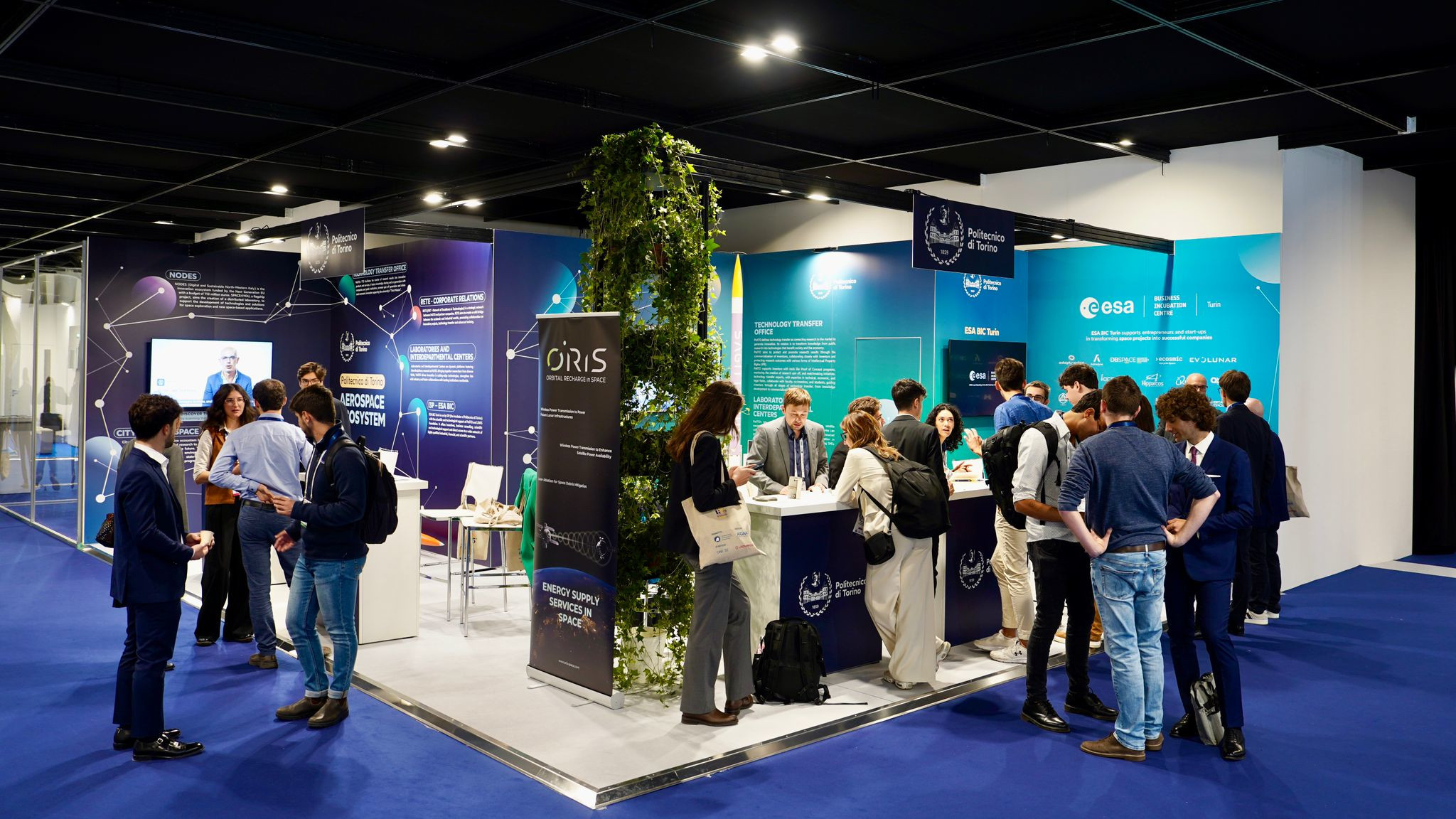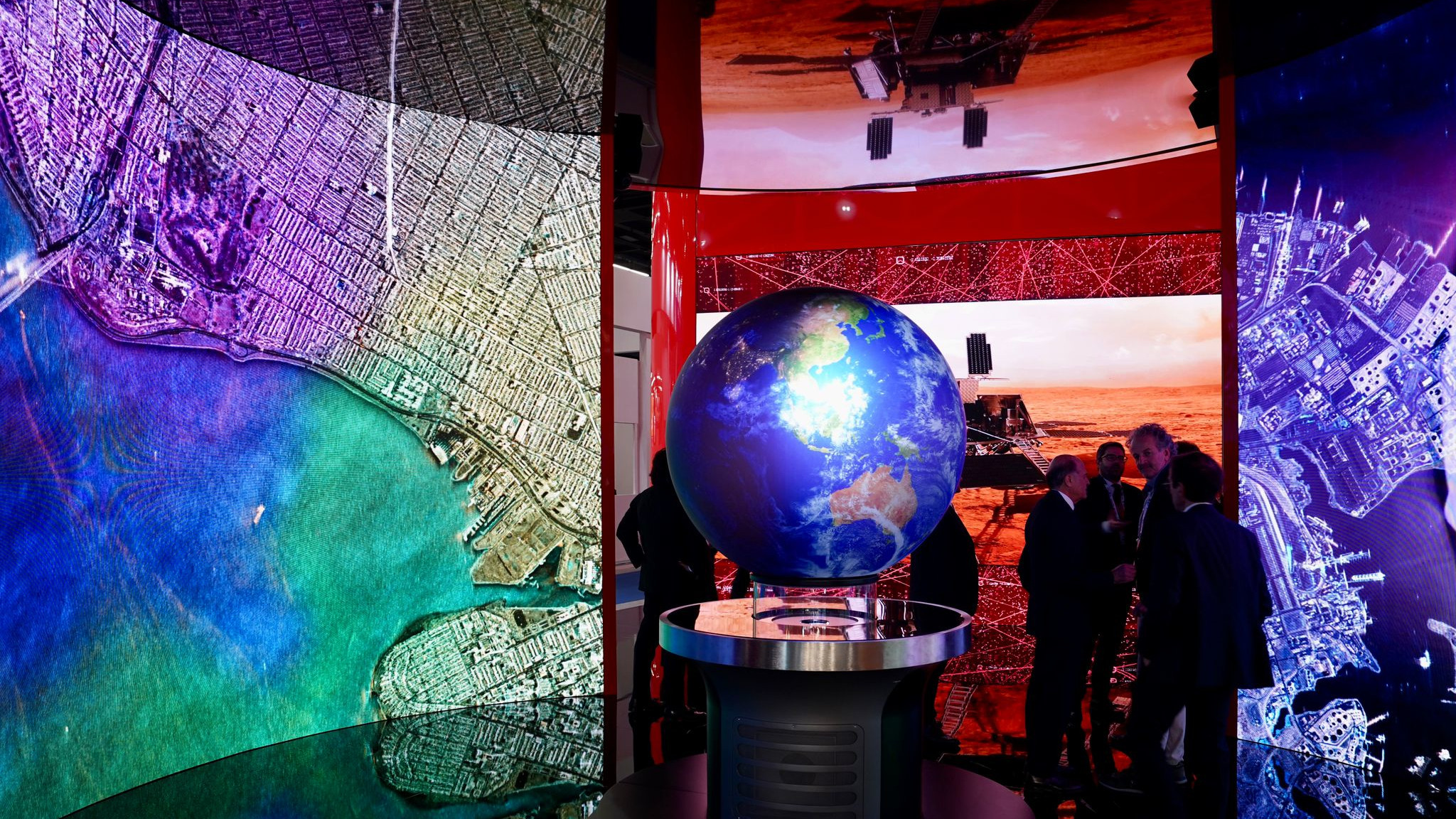
Student teams leading in space innovation
At Politecnico, research plays a key role from the very first years of university studies, thanks to student teams: international, multidisciplinary groups of young and brilliant people who work with passion on projects that often turn into competition prototypes. And what could be more exciting than working on an object that could even go into space?
Among the university's teams, many are involved in projects aiming for space and flight. Six of these teams, thanks to the AIDAA Students Team Challenge, launched and sponsored by the Italian Association of Aeronautics and Astronautics - AIDAA, had the opportunity to showcase their vision as young innovators in the space field at this year's IAC - International Astronautical Congress. These include Team ASTRA, CubeSat, DIANA, Team Icarus, PoliToRocket Team, and PoliTOrbital, which shared their missions with experts, professors, and enthusiasts of exploration beyond Earth.
At IAC, on Thursday, October 17, during the Global Networking Forum, the top three student teams that stood out for their projects and ideas were celebrated.
Innovation, sustainability, adherence to the "3G (geography, generation, gender)" concept, and multidisciplinarity were the criteria used by the Scientific Commission, which included Professor Enrico Zappino from the Department of Mechanical and Aerospace Engineering-DIMEAS, and PhD students Francesca Bracaglia from DIMEAS and Marianna Valente from the Department of Management and Production Engineering-DIGEP, to elect the winners, among which Team DIANA placed third on the podium, and PoliTO Rocket Team received a special mention as the best team representing the "3G principles" of diversity and inclusion.
Seventy teams from around the world responded to the Call for Interest to participate in the challenge, providing an abstract of their projects and a technical sheet of their group. Later, the Call for Ideas selected 23 finalist teams, including the six from Politecnico.
Once at IAC, the teams took part in an Interactive Presentation (IP) session, during which they alternated in special spaces set up in various areas of the fair to present their projects to the specialized audience of the IAC.
"We are thrilled to see student teams from around the world participate in such a high-level international conference as the IAC -emphasized Erasmo Carrera, professor of DIMEAS at Politecnico, President of AIDAA, and Local Chairman of IAC 2024 - It is an extraordinary opportunity for students to interact with peers from different cultures and backgrounds, enriching their academic and professional experiences. This event not only promotes collaboration and innovation, but it also allows students to showcase their ideas in a global context, fostering their personal growth and opening new perspectives for the future."
Politecnico confirms itself as a center of excellence in space research and education, with brilliant engineers as pioneers of innovation and entrepreneurship, winners of international awards and recognitions.
Student teams from Politecnico at IAC in detail
With the Latin motto Sic Itur Ad Astra, Team ASTRA not only looks at the stars but also at the creation of a self-sufficient and operational lunar base. Founded in November 2022 by Aerospace Engineering students, the team has already reached a major milestone after just one year: "Scout." This is a prototype of a lunar rover designed to explore the Moon's surface, capable of operating in low-gravity conditions and without an atmosphere. Its innovative spherical architecture offers significant advantages, including omnidirectional movement, the ability to avoid tipping over, and the possibility of cooperation between rovers to carry large loads. In addition to the rover, Team ASTRA's work aims to develop an integrated system of essential components for the sustainability of a lunar base, thus opening new perspectives for space colonization and life on other planets.
CubeSat, active since 2008, is the team dedicated to designing and developing small space platforms for scientific missions and testing new technologies in the aerospace sector. Over the years, it has demonstrated excellent expertise in building CubeSats, a type of miniaturized satellite with a cubic shape, a volume of 1 dm³, and a mass of no more than 2 kg (imagine, therefore, a shoebox), participating in successful missions. Their first micro-manufacture, E-ST@R, was launched in 2012 with the VEGA rocket flight, marking the debut of the first Italian CubeSat in space. Among the projects are also the "1U e-st@r-II", a technological demonstrator equipped with an active attitude control system, and the "3U Spei Satelles", launched by Politecnico in June 2023, incorporating a message of peace from the Holy Father. Furthermore, the team has developed the "6U ESA-Prop", a satellite platform designed to evaluate the performance of electric propulsion systems.
With 16 years of activity, Team DANA has established itself as an innovator in the exploration of the Moon and Mars. DIANA, an acronym for "Ducti Ingenio Accipimus Naturam Astrorum", made its debut with AMALIA, an innovative lunar rover that became a symbol of a promising career: enrolled in the Google Lunar X Prize, the rover stood out for its lunar-grade wheels and autonomous navigation system. After AMALIA, came T0-R0 and TRINITY: the first was developed to participate in the European Rover Challenge, while the second is the result of ten years of work, featuring a modular design that facilitates its production and updates, competing at the European Rover Challenge (ERC) in 2019. The team's passion continues with the ARDITO rover, a modular platform designed to support astronauts in planetary missions, equipped with an advanced locomotion system and a robotic arm with six degrees of freedom.
With the same ambition and audacity with which Icarus, fleeing the labyrinth, flew too close to the sun, team ICARUS, active since 2015 and consisting of 93 members, participates in international university competitions, standing out in the design and construction of unmanned aircraft and solid-propellant rockets. For example, Sirius, the project presented at the Air Cargo Challenge, marked the highest placement ever achieved by the university in the history of this competition and the best result obtained by the team since its founding: the innovative aircraft features a wingspan of almost 3 meters, capable of carrying up to about 3 kg of cargo. Soon, the team will be engaged in the European Rocketry Challenge - EuRoC 2024, a model rocketry competition, where they will compete with a rocket capable of reaching 3000 meters in altitude, and simultaneously, the team is working on RA 2.0, a solar-powered fixed-wing drone destined to become an example of cutting-edge clean aviation.
PoliTo Rocket Team is a dynamic group of over 120 students from the Politecnico, dedicated to researching, designing, and building rocket engines and experimental rockets with scientific payload capabilities. Among their flagship projects are Cavour, Efesto, and Ves, whose names are carefully chosen to celebrate the history and connection with Turin. The Cavour project, dedicated to Camillo Benso, Count of Cavour, is characterized by a simple and pragmatic design and represented the university at the European Rocketry Challenge in October 2023. Efesto, the blacksmith of the gods in classical mythology, is part of the New Space Economy and aims to improve liquid-propellant rocket engines in Italy, developing the first methane and liquid oxygen-based engine. Lastly, Ves, dedicated to Vittorio Emanuele II, was designed for international competitions, aiming for an apogee of 10,000 meters and equipped with an innovative airbrake system.
Finally, PoliTOrbital is a team that, since 2019, has grown from a shared dream of five people to a group of 48 members divided into eight specialized sections: Aerothermodynamics, Propulsion, Management, Market Analysis, Communication, CAD & 3D Printing, Medical Aspects, and Social Media. PoliTOrbital is dedicated to designing and developing aerospace vehicles, such as the "SALTO" and "Elisyum" prototypes, created with different 3D printing technologies and innovative materials. Successfully, the team has participated for the third consecutive year in the Student Aerospace Challenge, presenting the concept of a suborbital aircraft, for which the various aspects related to mission preparation were analyzed.

